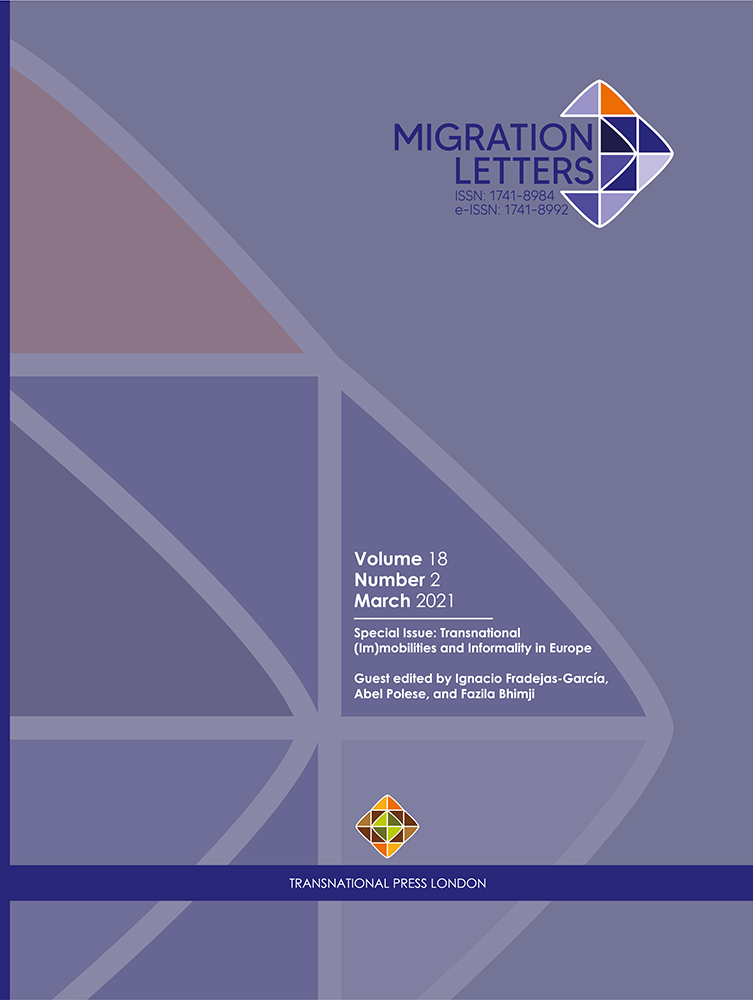‘Are We An Experiment?’ Informality as Indispensable for Syrians’ Resettlement in the UK
‘Are We An Experiment?’ Informality as Indispensable for Syrians’ Resettlement in the UK
Author(s): Caroline BluntSubject(s): Migration Studies
Published by: Transnational Press London
Keywords: Resettlement; informal; integration; social infrastructure; governance;
Summary/Abstract: This article unpacks the status and significance of informal social infrastructures within the Syrian Vulnerable Person’s Resettlement Scheme (SVPRS) in one region of the UK to offer a case study exemplifying an enduring and renewed political embeddedness of informalities as an idiosyncratically British way of governing migrant incorporation and producing social order. From the perspective of the scheme’s formal design, this was ‘bottom-up’, ‘community-led’ activity for community or ‘social’ integration. For refugees this was the existence and availability of a quality of sociality productive of a sense of existence and a viable and possible life, in other words, defining – above and beyond discrete domains or material things - what had been hoped for and expected from resettlement. Where this ‘informal social infrastructure’ was available, refugees conveyed an experience of positive processes of life, resonating with discussions of existential movement. Where unavailable refugees conveyed experience of a persistent or even worsened sense of biographical interruption that forced migration has been likened to. The article aims to contribute to informalities scholarship in relation to the imbrication of informal-formal as means of governance and attest to the significance of informalities to the reduction of uncertainty, production of stability, in other words means by which informalities help constitute and reproduce the social and cultural world. That the scheme includes any informal element is somewhat uncanny amidst a converging restrictive turn and considering formal rejection of laissez faire ‘multiculturalism’. The article concludes that experience of refugees in the absence of informal social infrastructures must not be read as a straightforward critique that might call for further formal components. Rather, it is a critique that emphasises the importance of informalities within formal design and analysis of the wider factors that hinder or promote their availability.
Journal: Migration Letters
- Issue Year: 18/2021
- Issue No: 2
- Page Range: 215-228
- Page Count: 14
- Language: English

